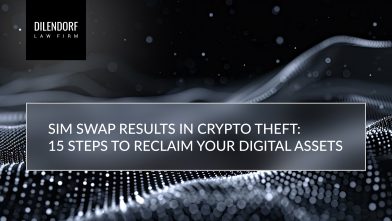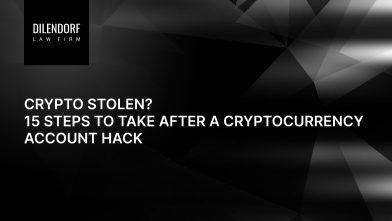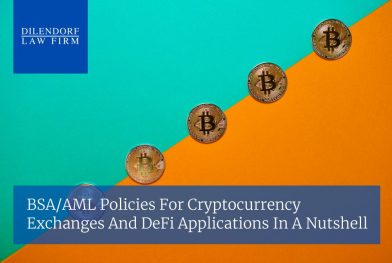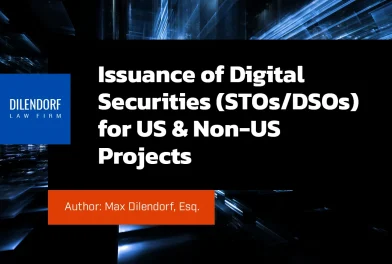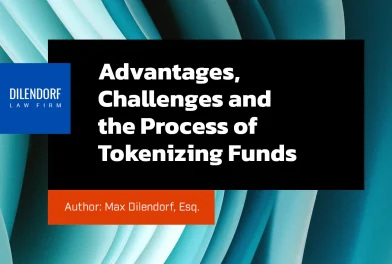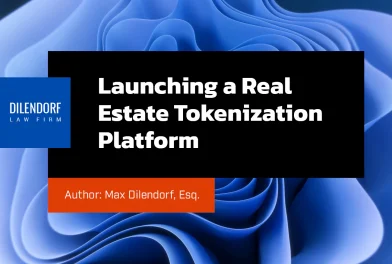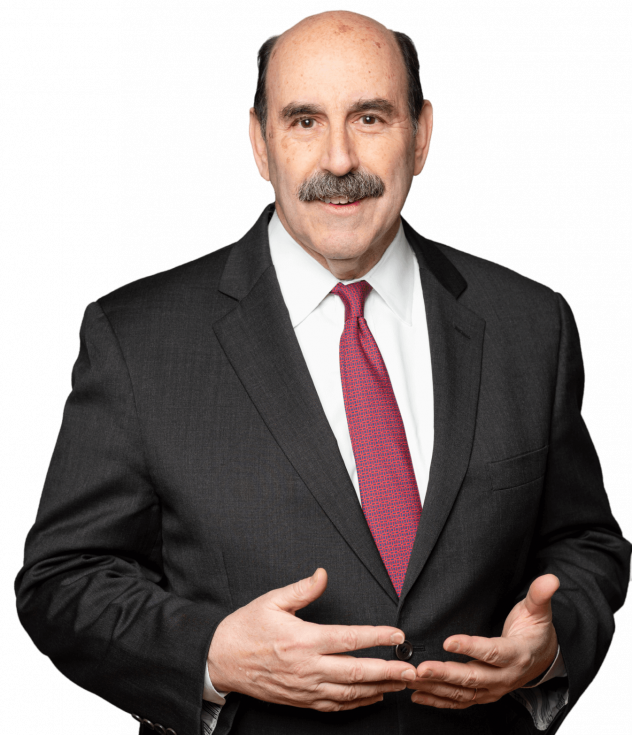Is Defi Legal In the US?
This Q&A post analyzes liability issues for developers and users of DeFi applications under the existing US laws and regulations, including the legality of peer-to-peer (P2P) crypto transactions.
Contact our team to discuss compliance considerations regarding your DeFi project and P2P crypto trading activities. Email: info@dilendorf.com; Phone: 212.447.9797.

1. Could a person who engages in financial activities using decentralized blockchain protocols be qualified as a money transmitter under the Bank Secrecy Act (“BSA”)? Answer: Yes, according to FinCen.
- Once the decentralized (distributed) application (DApp) is finalized and in production, the Financial Crimes Enforcement Network (“FinCen”) regulations may apply to persons who use the DApp to conduct certain financial activities.
- For example, if an investor or an owner/operator uses or deploys the DApp to engage in money transmission denominated in convertible virtual currency (“CVC”), then the investor or the owner/operator generally qualifies as a money transmitter under the Bank Secrecy Act (“BSA”).
2. Could a developer who deploys the DApp be qualified as a money transmitter under the BSA? Answer: Yes, according to FinCen.
- The development of a DApp consists of the production of goods or services, and therefore is outside the definition of money transmission. Thus, the developer of a DApp is not a money transmitter for the mere act of creating the application, even if the purpose of the DApp is to issue a CVC or otherwise facilitate financial activities denominated in CVC.
- However, if the developer of the DApp uses or deploys the DApp to engage in money transmission, then the developer will qualify as a money transmitter.
3. What type of cryptocurrency activities could be classified as “money transmission services” under the MSB regulations?
- The term “money transmission services” means “the acceptance of currency, funds, or other value that substitutes for currency from one person and the transmission of currency, funds, or other value that substitutes for currency to another location or person by any means.” 31 CFR § 1010.100(ff)(5)(i)(A).
- A person not exempt from M.S.B. status under 31 C.F.R. § 1010.100(ff)(8) may be a money transmitter when the person engages in transactions covered by FinCEN’s definition of money transmission, regardless of the technology employed for the transmittal of value or the type of asset the person uses as value that substitutes for currency, or whether such asset is physical or virtual (including cryptocurrencies).
4. Could a person who Engages in Peer-to-Peer exchange of cryptocurrency become subject to FinCen regulations? Answer: Yes, According to FinCen.
- An exchanger is a person engaged as a business in the exchange of virtual currency for real currency, funds, or other virtual currency.
- Exchangers are subject to the same obligations under FinCEN regulations regardless of whether the exchangers are directly brokering the transactions between two or more persons, or whether the exchangers are parties to the transactions using their own reserves, in either CVC or real currency.
- A person not exempt from Money Service Business (“MSB”) status under 31 C.F.R. § 1010.100(ff)(8) may be a money transmitter when the person engages in transactions covered by FinCEN’s definition of money transmission, regardless of the technology employed for the transmittal of value.
- However, a natural person engaging in such activity on an infrequent basis and not for profit or gain would be exempt from the scope of money transmission. 31 CFR § 1010.100(ff)(8)(iii).
5. What does the U.S. Department of Justice (“DOJ”) think about Peer-to-Peer cryptocurrency exchangers?
- In October 2020, the DOJ issued the “Cryptocurrency Enforcement Framework” Report.
- In Report, the DOJ noted that individuals seeking to buy or sell cryptocurrency other than through registered or licensed exchanges and financial institutions frequently turn to networks of individuals commonly referred to as peer-to-peer (“P2P”) exchangers or traders.
- As individuals who facilitate transfers of value for the public, including the buying and selling of cryptocurrency, P2P exchangers are considered MSBs and are subject to FinCEN record-keeping and reporting requirements.
- P2P exchangers commonly use online exchange platforms or websites that allow
users to trade virtual assets directly with one another and without a central operator. - Furthermore, unlike centralized virtual asset exchanges, P2P exchange platforms may operate without an intermediary that will accept and transmit virtual assets in exchange for fiat or another type of virtual asset, or that will collect customer identification information.
- Individual exchangers—as well as platforms and websites—that fail to collect and maintain customer or transactional data or maintain an effective AML/CFT program may be subject to civil and criminal penalties. See 31 U.S.C. §§ 5318 & 5322.
- DOJ noted that, in practice, however, many P2P exchangers fail to register with FinCEN as M.S.B.s or to comply with B.S.A. obligations, and some even conduct transactions without requiring any form of identification from the customer.
6. Has FinCen prosecuted individuals who engaged in P2P cryptocurrency exchange for violation of Anti-Money Laundering (“AML”) Laws? Answer: Yes
- In 2019, The Financial Crimes Enforcement Network (FinCEN) has assessed a civil money penalty against Eric Powers for willfully violating the BSA’s registration, program, and reporting requirements.
- Powers conducted over 200 transactions involving the physical transfer of more than $10,000 in currency, yet failed to file a single Currency Transaction Report (“CTR”). For instance, Mr. Powers conducted approximately 160 purchases of bitcoin for approximately $5 million through in-person cash transactions.
- Powers failed to register as MSB, had no written policies or procedures for ensuring compliance with the BSA, and failed to report suspicious transactions and currency transactions.
- Powers was not simply a “user” of virtual currency (i.e., someone who obtains and uses convertible virtual currency to purchase real or virtual goods or services for his own benefit).
- Exchangers of convertible virtual currency, like Mr. Powers, are “money transmitters” as defined in 31 C.F.R § 1010.100(ff)(5), as well as “financial institutions” as defined in 31 C.F.R § 1010.100(t), and must comply with BSA regulations.
- FinCEN noted that this was its first enforcement action against a peer-to-peer virtual currency exchanger and the first instance in which it has penalized an exchanger of virtual currency for failure to file CTRs.
- The facts of Powers’ case are indistinguishable from scenarios involving an individual who uses decentralized applications and DEXs (e.g., Uniswap) to exchange cryptocurrencies for sovereign-backed stablecoins and vice versa.
7. Could an individual doing business buying and selling cryptocurrency using P2P blockchain networks and DEXs become subject to states’ money transmitter regulations? Answer: Possibly.
- Every state (except for Montana) has money transmission regulations that, one way or another, apply to cryptocurrency transactions.
- Some states exempt P2P cryptocurrency transactions from the definition of money transmission. However, P2P cryptocurrency transactions involving sovereign-backed stablecoins could become subject to state money transmitter regulations. Stablecoins are essential in the P2P crypto ecosystem (e.g., staking, crypto liquidity pools, swaps, etc). Stablecoins is a crucial facilitator of decentralized finance. As of September 2022, the stablecoin market capitalization is $153 billion, representing almost 15% of the total cryptocurrency market capitalization.
- For example, under Texas law, exchanging one cryptocurrency for another is not money transmission. Regardless of how many parties are involved, there is no receipt of money, and therefore no money transmission occurs.
- In contrast, because a sovereign-backed stablecoin may be considered money or monetary value under the Texas Money Services Act, receiving it in exchange for a promise to make it available at a later time or different location may be money transmission.
- A virtual currency business that conducts money transmission must comply with all applicable licensing provisions of Finance Code Chapter 151 and of Title 7, Texas Administrative Code, Chapter 33.
- A state-by-state money transmission licensing analysis will turn on whether the stablecoin provides the holder with a redemption right for sovereign currency, thus creating a claim that can be converted into money or monetary value. This is true regardless of whether the redemption right is expressly granted or implied by the issuer.
- For example, in Colorado, a state money transmission license would be required when: (i) a person is engaged in the business of selling and buying cryptocurrency for fiat currency (sovereign-backed stablecoin?); and (ii) a Colorado customer can transfer cryptocurrency to another customer within the exchange. If the person’s business model has the ability to transfer fiat currency (sovereign-backed stablecoin?), through the medium of cryptocurrencies, the Division of Banking should be contacted to analyze the entire course of transmission to determine if licensure is required under the Money Transmitters Act.
8. Could cryptocurrency liquidity pool providers become subject to FinCen regulations and fall under states’ money transmitter regulations? Answer: Possibly.
- See above the discussion for P2P cryptocurrency transactions involving sovereign-backed stablecoins. If a liquidity pool pair consists of sovereign-backed stablecoins to facilitate trading, some states may regulate the token swap trading activities under states’ money transmitter laws.
- Because sovereign-backed stablecoins may be considered money or monetary value under some of the states’ money transmission statutes, receiving it in exchange for a promise to make it available at a later time or different location may be money transmission. Liquidity pools with sovereign-backed stablecoins are an essential component of DeFi.
- Liquidity pool providers could be classified as “exchangers” under the FinCen regulations (regardless of whether a transaction involves sovereign-backed stablecoins). An exchanger is a person engaged as a business in the exchange of virtual currency for real currency, funds, or other virtual currency.
- Exchangers are subject to the same obligations under FinCEN regulations regardless of whether the exchangers are directly brokering the transactions between two or more persons or whether the exchangers are parties to the transactions using their own reserves, in either CVC or real currency.
- FinCen regulations cover transactions and money service businesses, regardless of the technology employed for the transmittal of value. 31 C.F.R. § 1010.100(ff)(8). The decentralized nature of liquidity pools and automated market makers (“AMMs”) may not take out individuals operating such pools and AMMs from the purview of FinCen enforcement.
- We’ve seen companies requesting no-action letters from state regulators addressing whether engaging in the business as a virtual currency liquidity provider requires companies to obtain money transmitter licenses.
- States’ money transmission licensing analysis usually focuses on whether (i) sovereign-backed stablecoin are used and exchanged for liquidity pool operations; (ii) counterparties have been whitelisted tom comply with the federal AML regulations; (iii) liquidity pool operators have effective record-keeping procedures and policies, etc.
9. Could a person who engages in financial transactions on DEXs be Penalized for Violations of AML Laws? Answer: Yes, according to FinCen.
- See discussion above re: Eric Power’s case.
- Exchangers are subject to the same obligations under FinCEN regulations regardless of whether the exchangers are directly brokering the transactions between two or more persons, or whether the exchangers are parties to the transactions using their own reserves, in either CVC or real currency.
- A person not exempt from MSB status under 31 C.F.R. § 1010.100(ff)(8) may be a money transmitter when the person engages in transactions covered by FinCEN’s definition of money transmission, regardless of the technology employed for the transmittal of value or the type of asset the person uses as the value that substitutes for currency, or whether such asset is physical or virtual.
10. Could a person doing business buying or selling NFTs become subject to A.M.L. obligations under FinCen regulations for money service businesses? Answer: Yes, according to the U.S. Department of Treasury.
- In February 2022, the U.S. Department of Treasury Published a “Study of the Facilitation of Money Laundering and Terror Finance Through the Trade in Works of Art”. In this Study, the Treasury determined, among other things, that:
- NFTs or other digital assets that are used for payment or investment purposes in practice may fall under the virtual asset definition, and service providers of these NFTs could meet the FATF definition of a VASP.
- Persons doing business transferring virtual assets during the buying or selling of NFTs may have U.S. AML/CFT obligations under FinCEN’s rules for money service businesses if they are doing business in the United States.
- To understand the application of AML/CFT obligations, it is important to consider the nature of the business dealing in NFTs and their function in practice as well as the facts and circumstances of the platform or other person doing business.
11. Are NFT marketplaces subject to FinCen regulations for money service businesses? Answer: Yes, according to the U.S. Department of Treasury.
In February 2022, the U.S. Department of Treasury Published a “Study of the Facilitation of Money Laundering and Terror Finance Through the Trade in Works of Art”. In this Study, the Treasury determined, among other things, that:
- NFT platforms such as Dapper Labs, SuperRare, and OpenSea already allow owners of digital art to sell the assets on virtual exchanges.
- Depending on the nature and characteristics of the NFTs offered, these platforms may be considered virtual asset service providers (VASP) by FATF and may come under FinCEN’s regulations.
- NFTs or other digital assets that are used for payment or investment purposes in practice may fall under the virtual asset definition, and service providers of these NFTs could meet the FATF definition of a VASP.
- In this context, some NFT platforms may qualify as VASPs, depending on the characteristics of the NFTs that they offer.
- Platforms doing business transferring virtual assets during the buying or selling of NFTs may have U.S. AML/CFT obligations under FinCEN’s rules for money service businesses if they are doing business in the United States.
12. What’s the government’s legal standard for proving violations of the BSA?
- In civil enforcement of the Bank Secrecy Act under 31 U.S.C. §5321(a)(1), to establish that a financial institution or individual acted willfully, the government need only show that the financial institution or individual acted with either reckless disregard or willful blindness.
- The government need not show that the entity or individual had knowledge that the conduct violated the BSA or that the entity or individual otherwise acted with an improper motive or bad purpose.
- FinCEN has the authority to assess civil money penalties on MSBs that violate the BSA.
- Since 2001, the BSA and its implementing regulations have required MSBs to register with FinCEN by filing a Registration of Money Services Business, and renewing the registration every two years. 31 U.S.C. § 5330; 31 C.F.R. § 1022.380
- An MSB is required to report, through the filing of a currency transaction report (CTR), each transaction conducted “by, through, or to” the MSB that involves the physical transfer of more than $10,000 in currency. A CTR must be filed within 15 calendar days after the transaction occurs. A copy of the CTR must be maintained by the MSB for five years from the date filed. 31 U.S.C. § 5313(a); 31 C.F.R. § 1010.306(a)(2).
Contact Us
Please do not hesitate our digital asset lawyers at (212) 457-9797 or via email info@dilendorf.com to schedule a consultation, discuss your legal needs, and explore how we can advocate for your rights and interests.
Resources:
- Navigating the Wild West of DeFi Regulations and Staying Friends With FinCen, DOJ and FATF
- U.S. Dept. of the Treasury, Fin. Crimes Enf’t Network, What is the BSA Data?
- FinCEN Guidance FIN- 2019-G001, Application of FinCEN’s Regulations to Certain Business Models Involving Convertible Virtual Currencies
- CFTC Staff Issues Advisory for Virtual Currency Products
- Lael Brainard, Fed. Reserve Governor, “An Update on Digital Currencies”
- DoD Digital Modernization Strategy
- The FATF Recommendations: International Standards on Combating Money Laundering and the Financing of Terrorism & Proliferation
- FATF REPORT – Virtual Currencies Key Definitions and Potential AML/CFT Risks
- FBI Expects a Rise in Scams Involving Cryptocurrency Related to the COVID-19 Pandemic
- I.R.S. Notice 2014-21
- Operator Of Bitcoin Investment Platform Pleads Guilty To Securities Fraud And Obstruction Of Justice
- TREASURY ORDER 180-01. Financial Crimes Enforcement Network
- FinCEN Issues Guidance on Virtual Currencies and Regulatory Responsibilities
- Ripple Labs Inc. Resolves Criminal Investigation
- Office of Foreign Assets Control – Sanctions Programs and Information
- Treasury Sanctions Individuals Laundering Cryptocurrency for Lazarus Group
- OCC Interpretative Letter #1170, Authority of a National Bank to Provide Cryptocurrency Custody Services for Customers
- U.S. Dept. of the Treasury, Fin. Crimes Enf’t Network, FinCEN Advisory FIN-2012-A001: Foreign-Located Money Services Businesses

